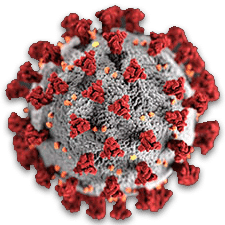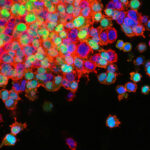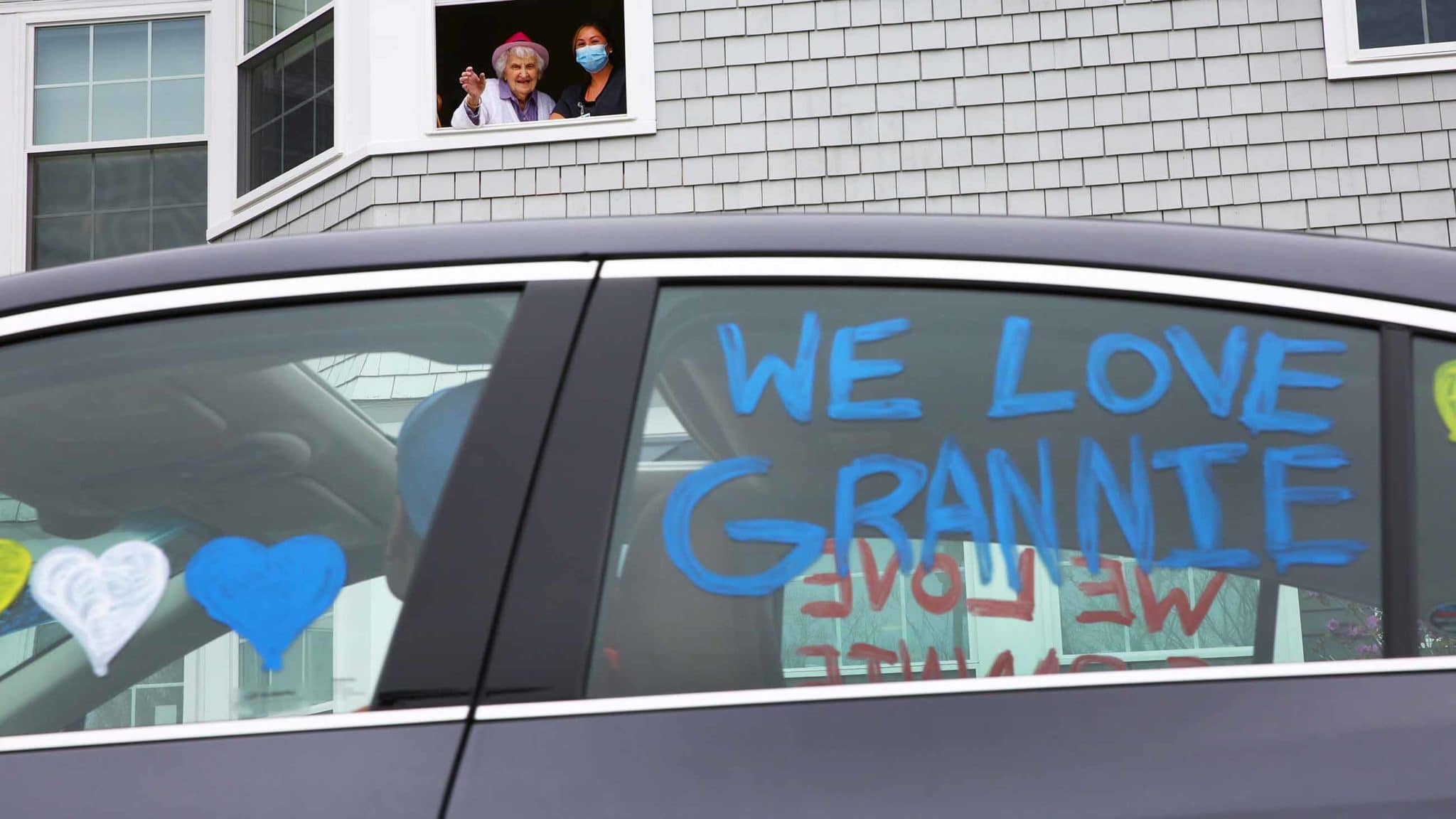On Monday, the U.S. Centers for Medicare and Medicaid Services (CMS) released new guidance for nursing homes seeking to reopen after months of Covid-19 lockdowns. Urging caution, the guidelines call for widespread testing of nursing home staff and residents, as well as inspections of hard-hit facilities.
The announcement comes as public health restrictions continue to lift across most of the nation, and amid continued concerns about the impact of Covid-19 on the roughly 1.3 million nursing home residents in the United States.
Fatality rates from Covid-19 are disproportionately high among the elderly, and SARS-CoV-2, the virus that causes Covid-19, has spread quickly in the close quarters of many long-term care facilities. As many as one-third of Covid-19 deaths in the United States have occurred among nursing home staff or residents, with some facilities seeing dozens of fatalities.
New reporting this week offered further details about how the virus has devastated these facilities nationwide. On Sunday, The Washington Post published an investigation into outbreaks at homes operated by Life Care Centers, a national chain with more than 200 facilities. Several of the centers, The Post found, “violated federal standards meant to stop the spread of infections and communicable diseases, even after the coronavirus outbreaks and deaths from Covid-19 began to sweep its facilities from the Pacific Northwest to New England.”
Federal inspection reports, obtained by The Post, detailed staff members failing to wash their hands, seeming to lose track of patients in isolation for Covid-19, and failing to screen visitors to a facility for symptoms.
On Thursday, a New York Times analysis of nursing homes highlighted national disparities among facilities, finding that those with higher proportions of black and Latino residents also had a much higher likelihood of experiencing Covid-19 cases — a pattern that holds up even when controlling for the size of the nursing home and differences between rural and urban settings.
For now, most nursing home residents remain largely isolated from contact with the outside world. And it remains difficult to know the precise impact of the pandemic, so far, on one of the country’s most vulnerable populations. Indeed, according to a recent report from the AARP, an interest group representing Americans aged 50 and above, the exact nursing home fatality statistics are still unknown, because some states, and the Centers for Disease Control and Prevention, have not made that data publicly available.
In this week’s Abstracts, we deliver our weekly roundup of coronavirus stories that defined the week’s news, and that are likely to be relevant in the weeks ahead.
 |
Thoughts or questions on Covid-19? |
• A vaccine trial update this week from Moderna Therapeutics raised hopes — and questions.
On Monday, Moderna, a Cambridge, Massachusetts biotechnology company, announced that its experimental Covid-19 vaccine had shown promise in an early trial. The announcement led the company’s assessed stock value to spike to $29 billion. The next day, though, an article in STAT raised questions about key details of Moderna’s announcement. Experts consulted by STAT reporter Helen Branswell noted that the company had released very little actual data about the trials. In addition, the National Institute of Allergy and Infectious Diseases, which has partnered with Moderna in developing the vaccine, did not put out any statement of their own confirming the company’s findings, and the Institute declined to provide comment to STAT. And, while Moderna asserted that all 45 of its trial volunteers had developed binding antibodies after being exposed to differing doses of the experimental vaccine, only eight had developed neutralizing antibodies, an important signal of vaccine efficacy. The article tempered investor optimism: After its publication, the Dow Jones Industrial Average fell 390 points.
• Brazil is now a global epicenter of Covid-19.
Brazil now ranks third among countries with the most cases of coronavirus, reporting more than 310,000 cases as of Friday morning. The news follows a warning from the mayor of São Paulo — which has been particularly hard hit — that the city’s health system could become overwhelmed if residents do not observe social distancing. “It is hard to believe,” Mayor Bruno Covas said this week, according to the BBC, “that some prefer the population to be subjected to Russian roulette. Indifference in the face of death is unseemly.” Covas and the São Paulo state governor are considering a strict lockdown for the region, which has so far seen nearly 70,000 cases and more than 5,000 deaths. As other local officials push for people to stay home, Brazil’s president, Jair Bolsonaro, continues to oppose such measures — often putting him at odds with members of his own cabinet. Last week, the country’s health minister, Nelson Teich, resigned after criticizing a move by Bolsonaro to allow certain non-essential businesses to reopen. Teich’s predecessor was ousted just a month before for defending the need for social distancing.
• A new study finds that hydroxychloroquine, once touted as a Covid cure by President Donald J. Trump, may actually endanger patients’ lives.
In one of the most ambitious studies to date examining the efficacy of hydroxychloroquine and related drug cocktails in the treatment of Covid-19, researchers concluded that not only does the popular — and controversial — therapy not work, Covid-19 patients who were given the drugs were at significantly higher risk of death than those who did not receive the drugs. The study, published in The Lancet medical journal on Friday and spearheaded by Mandeep Mehra, a Harvard Medical School professor and physician at Brigham and Women’s Hospital, examined the records of 96,000 hospitalized coronavirus patients on six continents. For those administered hydroxychloroquine — a common antimalarial drug that is also frequently prescribed for lupus — there was a 34 percent increased risk of death and a 137 percent increased risk of developing heart arrythmias. Adding an antibiotic to the mix — a poorly studied but widely touted treatment endorsed vigorously by President Trump — increased the risk of death to 45 percent, and of developing serious heart arrythmias to 411 percent. The study was observational, and only suggests a correlation between the drugs and certain outcomes, not a direct cause and effect. But it was enough to give many experts pause. “If there was ever was hope for this drug,” one expert told The Washington Post on Friday, “this is the death of it.”
• The World Health Assembly convened online this week, bringing offers of aid and new sparring between the U.S. and China.
In remarks Tuesday at the close of the World Health Assembly’s annual meeting, World Health Organization (WHO) chief Tedros Adhanom Ghebreyesus thanked member nations for their solidarity during the Covid-19 pandemic. The two-day conference — the 73rd in history and first to be held online — did include moments of unanimity. A resolution was passed without objection calling on international researchers to work together to develop diagnostics, medicines, and vaccines for Covid-19. Delegates also passed a second resolution calling for an independent review of the global response to the pandemic, including the WHO’s own performance. These moments were largely overshadowed, however, by ongoing tensions between officials from the U.S. and China. On Monday, Secretary of State Mike Pompeo criticized Tedros for not inviting Taiwan to the meeting — a move widely seen as an attempt to pacify China’s leadership, which rejects the sovereignty of Taiwan’s democracy — while Health and Human Services Secretary Alex Azar said the WHO’s incompetence had “cost many lives.” Later that day, President Trump tweeted a letter accusing the WHO of colluding with China — based in part on false statements — and threatening to cut off U.S. funding to the organization. Meanwhile, Chinese President Xi Jinping pledged $2 billion to fight the virus, and he promised to dispatch Chinese doctors and medical supplies to developing countries. Xi also backed calls for an independent review of the global pandemic response, sidestepping requests from Australia and the U.S. for a probe focused on China’s conduct. In the end, the approved resolution for the investigation did not mention any country by name.
• Despite distribution hiccups, hospitals across the country are beginning to receive the antiviral remdesivir.
On May 1, the U.S. Food and Drug Administration (FDA) issued an emergency use authorization for the antiviral drug, remdesivir, clearing the way for its use in treating Covid-19. The medication, originally developed as a potential Ebola treatment by the California-based pharmaceutical company Gilead, had shown potential against the new coronavirus as early as January, and has since been bolstered by additional research. The FDA action promised a swift rollout of remdesivir to hospitals across the country, using more than 600,000 doses donated by the Gilead. But to physicians’ frustration, the drug has been distributed in what The New York Times described as a peculiarly “haphazard” manner, with some small hospitals receiving plenty while major medical centers often received none. This week, to help even out distribution, Gilead donated more than a quarter of a million additional doses and states began coordinating a more consistent delivery, using their own health departments as distributors. For instance, Virginia state officials released a list on Tuesday of 55 hospitals that are receiving the drug. Minnesota’s health department is also allocating the drug based on assessed need. The donated supplies are expected to run out this summer, after which Gilead will start charging for remdesivir — a charge analysts expect to total around $4,500 per patient treatment.
There’s plenty of excellent reporting and analysis available.
Below is a list of some of the journalists, experts, and publications that Undark is following.
- Helen Branswell (@HelenBranswell), senior writer, infectious diseases, STAT
- Peter Sandman and Jody Lanard, risk communication experts
- Kai Kupferschmidt (@kakape), molecular biologist and science journalist, Science Magazine
- Trevor Bedford (@trvrb), computational biologist, Fred Hutchinson Cancer Research Center, Seattle
- Lawrence Gostin (@lawrencegostin), professor of global health law, Georgetown University
- Muge Cevik (@mugecevik), infectious disease researcher, University of St. Andrews
- A. Marm Kilpatrick (@DiseaseEcology), infectious disease ecologist, UC-Santa Cruz
- Julia Belluz (@juliaoftoronto), health correspondent, Vox
- Ed Yong (@edyong209), science writer, The Atlantic
- Kaiser Health News, full coronavirus coverage
- ProPublica, full coronavirus coverage
- U.S. Centers for Disease Control and Prevention, latest coronavirus news
- World Health Organization, rolling coronavirus updates
- Global Covid-19 Case Tracker, Johns Hopkins Center for Systems Science and Engineering
- Brief19, a review of Covid-19 research and policy
- The Covid-19 Tracking Project
- The Syllabus, Coronavirus Reading Lists
- Virus Academics Twitter list
Undark will continue to provide weekly roundups of Covid-19 news each Friday for as long as the pandemic continues. You can find our own Covid-19 coverage here.
Deborah Blum, Lucas Haugen, Jane Roberts, Francesca Schembri, and Tom Zeller Jr. contributed to this roundup.











Comments are automatically closed one year after article publication. Archived comments are below.
We have been on lockdown here since March 1. When can we expect lockdown will be lifted please ty